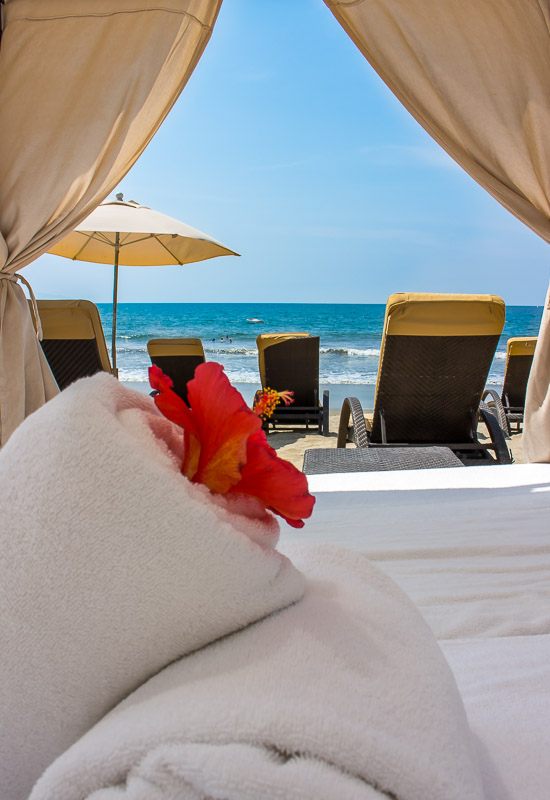
Thinking of buying a timeshare? We explore the pros and cons, and help determine if a timeshare is right for you.
Travel has changed in 2020. As travelers, most of us are spending a lot more time on road trips, visiting destinations closer to home, and spending more time in one place.
These changes have led to more and more people looking at buying vacation properties and timeshares.
What is a timeshare, anyway? At it’s core, a timeshare is a vacation property arrangement that lets you share the property costs with others with a guaranteed time allotment per year at the property.
Are timeshares a good idea?
Timeshares often get a really bad rap. Some of the criticisms are well founded, but there are also some real perks to owning a timeshare.
Not all timeshares are the same, but generally speaking, most timeshares share some characteristics. If you’re buying a timeshare, make sure you know exactly what you’re getting into.

Timeshare pros
Cost. Timeshares are generally much less expensive than buying a vacation property outright, especially if purchased through the resale market. That said, you’ll likely have to pay monthly maintenance fees. Be on the lookout for transfer fees and service fees as well.
Exclusivity. Some properties offer timeshare spots even if they’re sold out to the general public. For example, vacation clubs like Disney Vacation Clubs often have completely sold out weeks, so buying a timeshare by-owner there means you may be one of a select few who get to enjoy the resort at that time.
Convenience. The ease of timeshares is one of their most appealing qualities. There’s definitely something appealing about having a vacation spot pre-booked every year, just waiting for you to arrive.
Options: A lot of timeshares these days are affiliated with exchange companies which allow you to trade your week or points in for a week at a resort or property somewhere else in their network for little to no costs. Of course, every timeshare is different so make sure you check out your options when signing the papers.
Less hands-on maintenance and repairs. Most timeshares charge a fee for maintenance, which is then handled by resort staff. If you own the timeshare, you’ll pay a fee for someone else to do maintenance, but the day-to-day headaches aren’t yours.
You can always sell. You can sell most timeshares however, and this is IMPORTANT, make sure you look over your timeshare agreement before you buy, as some timeshares are difficult to sell, and some don’t allow sales at all!

How to sell a timeshare
Back in the day, the only way to sell a timeshare was through the resort itself, newspaper classifieds (remember those?), or possibly a real estate agent. Luckily, it’s much easier to tell a timeshare today, with several websites offering an online service.
We took a quick browse around SellMyTimeshareNow to see how the process works, since it’s the first search result that pops up in Google.
The head offices of the company are in the USA, in Portsmouth, New Hampshire (one of our favorite places to visit in the USA – check out our article on family things to do in New Hampshire). There’s also a corporate office in Orlando, Florida. They’ve been in business for 17 years – since 2003 (we verified by looking the URL up on the Internet Archive/Wayback Machine).
The site can connect you with a fairly full suite of services, from full service title insurance, to resale financing of up to $35,000 USD through their affiliate broker service and title insurance.
The website lets you sell your timeshare, buy a timeshare, rent your timeshare, or find a timeshare rental. There are a bunch of helpful resources, including information on timeshare resorts and brands, and helpful articles on the ins and outs of timeshares, or how to avoid timeshare scams.
There are timeshares for sale in more than 217 countries and territories worldwide. Since a timeshare isn’t a traditional type of real estate, you aren’t necessarily required to use a real estate agent to buy or sell.

Cons of timeshares
Potential of rising annual fees. Many people buy a timeshare, only to find that their annual fees keep increasing every year.
High pressure sales presentations. Timeshare sales presentations can be incredibly high pressure. Many resorts lure prospective buyers in with a free meal, or a deeply discounted stay of a few nights if they attend a time share presentations in exchange. However, the promised one hour presentation often turns into several hours, and includes high pressure sales tactics, and salespeople who hound you while you’re on the resort property.
One way to avoid these high pressure sales tactics and probably save money at the same time is to buy used instead. If you buy online, you’re even further removed from the high pressure sales.
Most timeshares lose value over time. Unlike regular real estate, you’re likely not building equity in a timeshare the longer you own it, and you may actually see the value of your timeshare decrease over time.
You pay for a timeshare even when you don’t use it. Even if you can’t visit your timeshare every year, you’ll still continue to pay annual fees (and payments on your loan, if you have one).
You may not be able to rent out your timeshare. This one really depends on the resort, but many resorts won’t let you rent out your timeshare. Of course, there are other resorts that are happy to rent out your timeshare, and that will even manage the rental for you (for a fee, of course).
Boredom. Returning to the same vacation property every year can potentially get very old, very quickly. Before you buy into a timeshare, make sure that it’s someplace you’d like to visit again and again.
Some timeshares use a confusing point system. If your timeshare is called a “vacation club”, it likely operates on a point system. You buy a specific number of points, which you can then redeem at a variety of destinations.

You may not be able to rent out your timeshare. This one really depends on the resort, but many resorts won’t let you rent out your timeshare. Of course, there are other resorts that are happy to rent out your timeshare, and that will even manage the rental for you (for a fee, of course).
Your loan may have a high interest rate. Traditionally, loans for timeshare properties charge a much higher interest rates than traditional mortgages.
Extra fees may pop up. Most timeshares allow for one time extra fees to help pay for improvements like a new roof. You may even be charged a fee to sell, or pay a fee to trade your week for a different location in the vacation club.

How to buy a timeshare
If you decide all the pros outweigh the cons, then there are a few helpful tips to make buying a timeshare much easier, less expensive, and less hassle.
Buy your timeshare resale. You’ll generally pay a lot more for your timeshare if you buy it directly from the resort and new. You’re likely to get a much better deal if you buy your timeshare from someone who’s tired of paying annual fees, or who simply can’t use their timeshare weeks any more.
Get a lawyer. A lawyer, who is experienced in timeshares, can help you avoid a lot of potential pitfalls.
Clarify all the fees. Most timeshares have annual fees, but one-off fees for repairs, and even fees for transferring weeks, as well as other fees, are commonly found.
Read your agreement carefully. Timeshare agreements can be long, tricky and convoluted. Though it may be tiresome, reading your agreement thoroughly may save some unwelcome, and unpleasant, surprises down the road.
Know your rescission period. A timeshare rescission period is a short window of time when you can walk away from the timeshare purchase. In the USA, rescission periods range from a few days to over two weeks. The rescission period is based on where you buy your timeshare, not where you live.
If you buy a timeshare outside of the USA, you’ll need to read up on their rescission periods. Not all countries offer a rescission period.
Try before you buy. You can even try out a timeshare before you buy by renting a timeshare at the resort that most interests you. This isn’t a bad idea since you’ll get hands on experience with the building, the location, the people, the food options and the general vibe of the resort.
All in all, while timeshares can be fraught with problems, there are definitely some advantages, too, for the right person. If you’re truly interested in buying a timeshare, the resale market may be the best way to save money.
Have you ever owned a timeshare? What was your experience? Let us know in the comments below!







